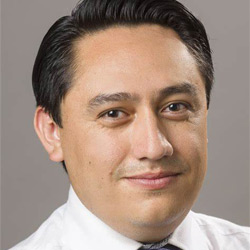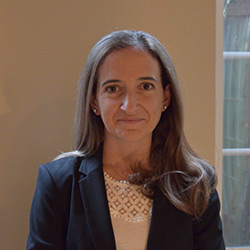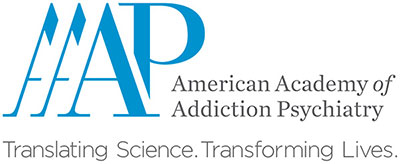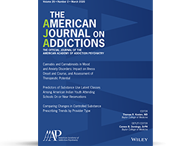NIDA-AAAP Resident Training Award in Substance Use Disorders, supported by the National Institute on Drug Abuse (NIDA) and sponsored by AAAP
The American Academy of Addiction Psychiatry has partnered with NIDA CTN to fund NIDA Mentor-Facilitated Training Awards, a key component of the NIDA CTN Dissemination Initiative, supporting the development of expertise in substance use disorder (SUD), especially opioid use disorder (OUD), through the completion of a mentor-supervised project focused on adoption and/or dissemination of SUD treatment research and the publication of the results. Eligible clinicians include early career psychiatrists and addiction psychiatrists, including residents, addiction psychiatry fellows and psychiatrist.
Dates and Deadline Information
Deadline has passed.
AAAP will consider additional clinical topics that meet the criteria of direct relevance to addiction treatment science and dissemination. For any questions, applicants are encouraged to contact Nicolas Buendia ([email protected]).

Ebony Cladwell, MD, MPH |

José M Flores, MD, PhD, MPH |

Virginia Medinilla, MD, PD |
The goals of the award are:
- to promote and improve knowledge of evidence-based SUD treatment among health care providers,
- to promote the adoption of evidence-based approaches in medical settings,
- to promote the dissemination of substance use disorder research findings, and
- to facilitate the professional growth and development of future clinician leaders in the area of SUD management.
The NIDA-AAAP Training Award provides up to one year of support to support training in dissemination of research. Through support from this program, the awardee(s) will engage in a Mentored opportunity to learn about key areas of SUD and SUD treatment strategies through their project, attendance at conferences and workshops, and interaction with leading experts in the field.
This award cannot be used to conduct basic or a clinical trial. Applications proposing non-exempt research involving human subjects that must be reviewed by an IRB under the requirements of the U.S. Department of Health and Human Services (HHS) regulations at 45 CFR part 46 will not be eligible. Secondary data analysis of treatment research datasets may be completed in pursuit of award goals, provided the project proposed is eligible for Institutional Review Board (IRB) exemption and displays merit to impact on or increase the adoption of evidence-based practices. In addition, applications that propose recruiting participants are not eligible.
The award offers up to $10,000 for awardees (award amount includes travel to AAAP’s 2023 annual meeting; and travel to the NIDA Clinical Trials Network’s Annual Meeting in Bethesda, MD) and $2,000 for a mentor stipend. Funds may also be used for educational and resource materials/courses. (All awards are contingent upon the receipt of adequate funding support.)
Purpose of the Award
The purpose of the award is to enhance the trainee’s ability to disseminate and/or adopt evidence-based SUD treatment practices through a mentored project that will:
- Provide the trainee with a mentored experience in effective dissemination of existing or emerging research findings and/or the implementation/adoption of research in clinical practice. Applicants are encouraged to develop projects that address or improve upon current gaps in the dissemination of research findings or implementation/adoption of evidence-based treatment practices. Project updates will be shared at the NIDA CTN Annual meeting. Project results will be presented at the American Academy of Addiction Psychiatry’s annual meeting. Poster presentations are acceptable. The trainee is strongly encouraged to develop a manuscript for submission for publication in a peer-reviewed journal.
- Link the trainee with an experienced mentor to guide and facilitate an up to one year-long mentored experience, culminating in a project related to dissemination and/or adoption of SUD research findings.
- Provide the trainee with a mentored opportunity to learn about key areas of SUD and SUD treatment strategies through systematic literature review, attendance at conferences and workshops, and interaction with leading experts in the field.
Instructions for Application Submission
The applicant may be an early career psychiatrist or addiction psychiatrists including residents, addiction psychiatry fellows and psychiatrists. Eligible candidates must not have a NIH research fellowship or a NIH research award or a NIH career development award. Applications that do not adhere to the following guidelines will not be reviewed.
Applicants must submit the following information:
- Candidate section, including a personal statement and interest in the substance use field, of no more than two pages (single spaced, no less than 12 pt. font and 1” margins).
A proposal of no more than five pages (single spaced, no less than 12 pt. font and 1” margins) including:- Project title and description that includes the following sections: objectives, background, project rationale, project method, and an implementation and dissemination plan.
- A detailed project timeline with tentative dates of all activities for the proposed project.
- A budget and budget justification containing sufficient detail so that each item can be judged separately. Computer related items (e.g., personal computers, printers, modems, etc.) are unlikely to receive budget approval. Salary support will not be provided for the mentor. No indirect costs for the institution will be provided. Typical budget items may include, but are not limited to, honoraria, travel expenses, etc.
- A letter detailing any current and previous funding.
- The applicant’s and mentor’s current biosketch or curriculum vitae.
- A letter of support from a proposed mentor of no more than two pages (single spaced, no less than 12 pt. font and 1” margins), including a brief description on how he/she will play a key role in shaping and assisting the candidate in fulfilling the needs of this award.
- Optional: A letter of support from the residency training director, of no more than two pages (single spaced, no less than 12 pt. font and 1” margins).
Project Examples and Recommended Topic Areas
Clinically relevant applications with a focus on treatment of substance use disorders and the dissemination of research findings or facilitation of adoption of evidence-based practices in clinical settings are encouraged. To this end, awardees are to develop and execute a plan designed to increase their own clinical knowledge of the management of SUDs. They will then design and complete a project aimed at improving the dissemination and/or adoption of existing SUD treatment research findings.
Examples of appropriate activities and projects include but are not limited to:
- Reviewing available curricula or training programs, identifying status of education on SUD, especially opioid misuse, OUD diagnosis and management in various settings, and proposing and conducting activities to improve or increase the adoption of evidence-based practices.
- Developing materials that could be used for quality improvement or integration of an evidence-based approach or process, in the management of SUD, including OUD, in a medical setting and conducting activities for quality improvement or adoption.
- Other activities consistent with the goals of the Dissemination Initiative to accelerate the dissemination of research findings and implementation or adoption of evidence-based SUD treatment in clinical practice.
- Analysis of de-identified data from completed clinical trials such as those found on the NIDA Data Share website to inform dissemination or implementation efforts; to characterize availability of data on substance use or practice patterns; identify gaps in the provision of evidence-based practices; and/or identify needs for dissemination or implementation.
Proposals must include components of evidence-based addiction science to include clinical topic areas such as:
- Screening and brief intervention for risky use of opioids, marijuana, tobacco, alcohol, and other substances;
- Integrating substance use treatment with(in) mental health, primary care, etc
- Overdose prevention
- Substance use and co-occurring disorders
Award Requirements
- Candidates should not have had previous or simultaneous funding from the National Institutes of Health (NIH) or other research funding sources. Eligible candidates will not have a career development award.
- Applicants must either be AAAP members or have a membership application pending (not paid by the award) and agree to submit a proposal for a poster presentation on his or her activities or project for, and attend AAAP’s 34th Annual Meeting in December 2023.
- Applicants must agree to attend the NIDA Clinical Trials Network’s Annual Meeting date to be determined in Spring, 2023 in Bethesda, MD. Cutting edge research will be presented at the NIDA CTN Annual Meeting and awardees will have the opportunity to network with other clinicians and researchers in the field.
- All applicants must be available to attend by teleconference an orientation provided by The Bizzell Group, on behalf of NIDA, on December 16, 2022.
- The trainee is required to participate in 4 quarterly meetings to discuss the progress of the trainee with their perspective projects.
- All applicants are responsible for ensuring their own adherence to all federal research regulations, certifications and assurances. Institutional agreement of acceptance of their role and responsibility for the oversight of the award and proposed activities will be requested through the application process.
- Participants agree to participate in all annual surveys as part of the program evaluation process.
Reporting Requirements
- Progress and Final Reports: The trainee and designated mentor are required to submit a 6-month narrative progress report and a final narrative report at the end of the performance period. Failure to provide the report may negatively impact your institution’s ability to apply for future awards. These reports will be submitted to AAAP for subsequent submission to NIDA. In the event that the awardee’s project is not completed at the end of the designated performance period, and appropriate approvals to continue have been granted, the final report must still be submitted as an outline of work done and projections for work/expenditures remaining.
- Publications: All work supported in part by the NIDA Award should be made available to the public and scientific community through approved scientific channels such as national meetings and peer reviewed publications. Publications will acknowledge the support of NIDA and AAAP. Two reprints of each publication should be forwarded to AAAP and NIDA.
Review Process
Each application will be reviewed by researchers, program managers and/or clinicians who are involved and informed in dissemination of findings from the field of SUD. Each application will be judged primarily by the likelihood of producing dedicated, qualified clinicians and champions in the field of medicine and SUD as indicated by 1) the qualifications of the applicant, 2) the qualifications of the mentor, 3) the overall merit of the training plan and project, 4) the adequacy of the proposed budget to meet the objectives, and 5) the willingness of the institution to provide the necessary facilities and support to complete the project as described.



